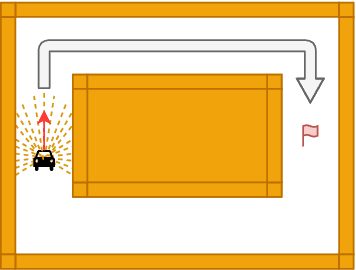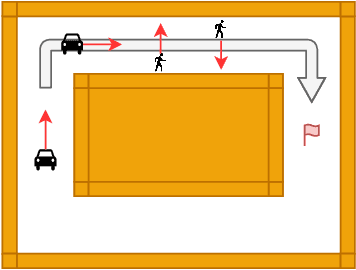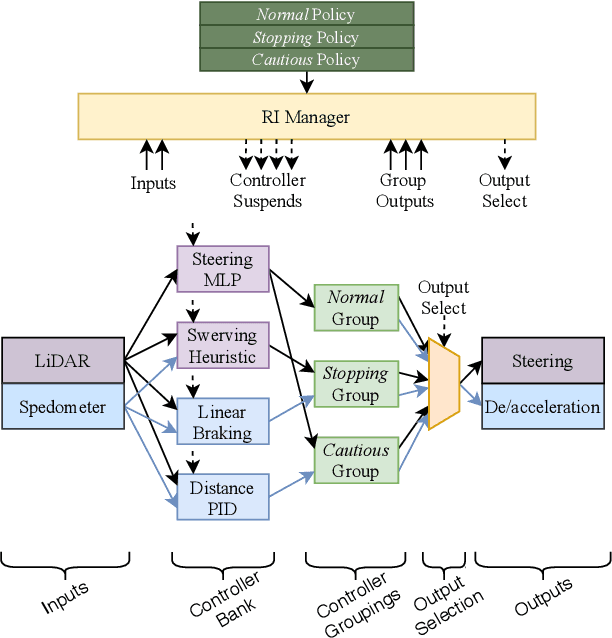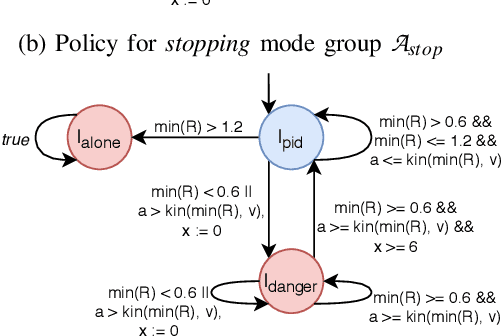Runtime Interchange for Adaptive Re-use of Intelligent Cyber-Physical System Controllers
Paper and Code
Sep 24, 2021



Cyber-Physical Systems (CPSs) such as those found within autonomous vehicles are increasingly adopting Artificial Neural Network (ANN)-based controllers. To ensure the safety of these controllers, there is a spate of recent activity to formally verify the ANN-based designs. There are two challenges with these approaches: (1) The verification of such systems is difficult and time consuming. (2) These verified controllers are not able to adapt to frequent requirements changes, which are typical in situations like autonomous driving. This raises the question: how can trained and verified controllers, which have gone through expensive training and verification processes, be re-used to deal with requirement changes? This paper addresses this challenge for the first time by proposing a new framework that is capable of dealing with requirement changes at runtime through a mechanism we term runtime interchange. Our approach functions via a continual exchange and selection process of multiple pre-verified controllers. It represents a key step on the way to component-oriented engineering for intelligent designs, as it preserves the behaviours of the original controllers while introducing additional functionality. To demonstrate the efficacy of our approach we utilise an existing autonomous driving case study as well as a set of smaller benchmarks. These show that introduced overheads are extremely minimal and that the approach is very scalable.
 Add to Chrome
Add to Chrome Add to Firefox
Add to Firefox Add to Edge
Add to Edge